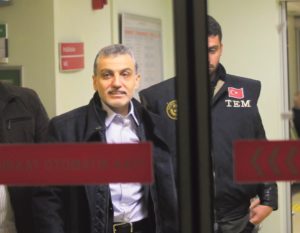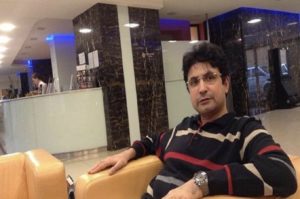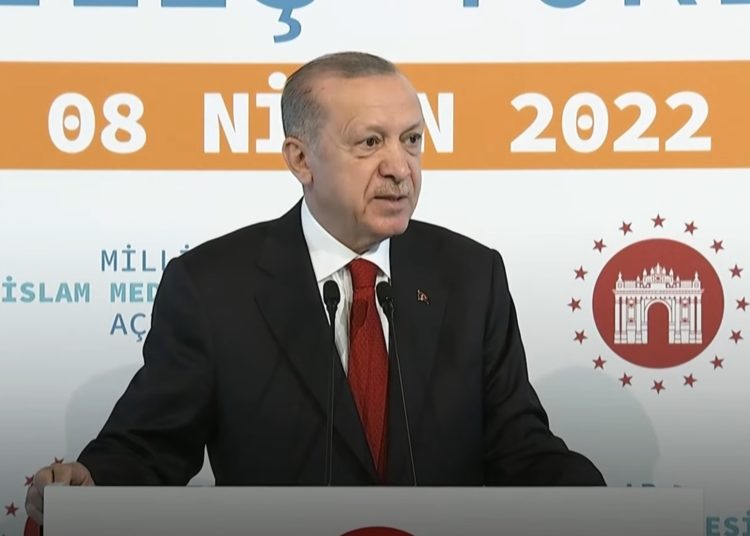Abdullah Bozkurt/Stockholm
In an official communiqué submitted to the UN and aimed at whitewashing massive human rights abuses in Turkey, the government of President Recep Tayyip Erdoğan claimed that no journalist was jailed for his or her work and denied well-documented cases of torture and ill-treatment.
The government’s response to a UN committee report, published on April 4, 2022, as part of Turkey’s compliance with the UN Convention against Torture and Other Cruel, Inhuman or Degrading Treatment or Punishment, included dozens of statements rejecting the findings of UN experts who put a spotlight on imprisoned journalists, abuse and torture in the country.
“There are no convicts and detainees held in penal institutions merely for press activities,” Turkish officials communicated to the UN despite the fact that well over a hundred journalists and media professionals are imprisoned in the country, making Turkey one of the leading jailers of journalists in the world.
The Turkish authorities who responded to the UN Committee against Torture (CAT) simply ignored the fact that public prosecutors in Turkey often cite critical articles, TV commentaries and social media postings of journalists as evidence of a crime and classify them under abusive anti-terrorism laws in jailed journalists’ cases.
Since 2014, in the aftermath of major graft probes that incriminated senior government officials including Erdoğan as well as his family members, Turkey has been pursuing a systematic and relentless crackdown on independent journalists and critical media outlets.
Turkey’s response to the UN committee contained the lie that no journalists are in jail because of their work:
The crackdown intensified after a false flag coup attempt in July 2016, with the government using it as a pretext for imprisoning dozens of journalists and shutting down more than 200 media outlets. The plight of the journalists who suffer under the Erdoğan regime has been documented by credible advocacy groups such as the Committee to Protect Journalists (CPJ) and Reporters Without Borders (RSF).
There are still 161 journalists and media professionals in Turkish prisons according to the Stockholm Center for Freedom (SCF), and 167 journalists who were forced into exile in order to escape wrongful imprisonment or remain at large.
Nordic Monitor previously published a secret Turkish government document that revealed Turkey privately acknowledged it had jailed dozens of journalists even though it stuck to the official line denying the imprisoning of any journalist. The document, dated July 2, 2020 and signed by Justice Ministry official Hacı Ali Açıkgül, head of the human rights department, listed 68 journalists imprisoned in Istanbul alone.
The official was asking the Istanbul Chief Public Prosecutor’s Office to provide details on the cases of imprisoned and prosecuted journalists because the Committee of Ministers of the Council of Europe was pressing Turkey for detailed information on the cases.
Most likely, Turkey’s recent communication to the UN followed the same pattern, with Turkish officials deciding to stay with the policy of denial while privately looking into cases of jailed journalists and discussing ways to counter serious rights violations raised by UN investigators.

The most abusive charge leveled by prosecutors against government critics in Turkey including independent journalists stems from counterterrorism laws that carry a heavier sentence and have a chilling impact on journalists across the board. Statistics recently revealed in the the 2021 Council of Europe Annual Penal Statistics on Prison Population showed how the Erdoğan government abused terrorism provisions to jail critics.
A total of 30,555 of these people, or 95 percent in the entire prison population in Europe, are in Turkish prisons on terrorism convictions, Turkey is followed by the Russian Federation with 1,026 prisoners, or 3.2 percent of the total number of terrorism prisoners. Spain is in third place with 195 inmates.
The Erdoğan government also uses defamation and espionage charges to hunt down critical journalists, and the courts systematically hand down prison sentences to defendants who were targeted by the government witch hunt. The Gülen movement, a group that is opposed to the Erdoğan regime and critical of the government on a range of issues, from Turkey’s aiding and abetting of violent jihadist groups to pervasive corruption in the administration, bears the brunt of the crackdown.

Since 2014 over half a million people have faced legal action in Turkey on fabricated terrorism charges because of their affiliation with the Gülen group. The Kurdish political movement comes second in attracting the wrath of the Erdoğan government, with many members of the opposition Peoples’ Democratic Party (HDP) jailed on terrorism charges.
In their bid to justify the jailing of journalists in the government response to the UN, Turkish diplomats also hid behind the pretext that jailed journalists do not have credentials issued by Turkey’s Presidential Directorate for Communications (CİB), run by Erdoğan’s spokesperson.
Some of the journalists who have been jailed since 2014 in fact possessed press credentials when they were sent to prison. What is more, the Turkish government revoked the press cards of many critical and independent journalists to present a claim that no journalists are behind bars because they lack credentials.
The press cards of hundreds of journalists in Turkey were cancelled on terrorism charges in the aftermath of the failed coup, when the Turkish government launched a massive crackdown on its opponents under the pretext of an anti-coup fight. The practice has continued since then.

In response to a question posed by deputy chairperson of the main opposition Republican People’s Party (CHP) Gülizar Biçer Karaca, the presidential directorate admitted that it had refused to renew the press cards of 1,371 journalists and that 1,238 press cards were cancelled between December 14, 2018 and December 31, 2020.
A similar tactic is also used by the Erdoğan government to punish foreign journalists who work in Turkey as representatives of foreign media outlets or were assigned to cover specific issues for a shorter period of time and required credentials.
“It is examined whether the convicts and detainees in penal institutions who claim to be press employees have records registered to the Social Security Institution (SGK) and press credentials according to the records of the Presidency of the Republic of Turkey Directorate of Communications or not,” Turkish diplomats wrote to the UN.
The statement also carries a partial admission that some are in jail as journalists in the government’s view and as such contradicts an earlier assertion made by Turkish authorities. Many jailed journalists have records as employees of media outlets according to SGK records that show their employers made tax payments and pension contributions on their behalf during the time they were employed.

The Turkish government also claimed that “some convicts and detainees who are members of other professions are falsely presented by some organizations as members of the press,” in apparent reference to prominent columnists and opinion-makers who regularly wrote articles for media outlets but also were members of other professions.
Throughout the report, Turkish authorities made a number of statements in their effort to justify torture and abuse, which are rampant in Turkish prisons and detention facilities; did not address the impunity of officials in torture cases; and defended the unprecedented purge of nearly 150,000 people from government jobs in arbitrary and summary dismissals.
The Turkish government tried to cover up black sites that were secretly used to detain hundreds of people without any access to lawyers or family members for days and weeks in 2016, saying that such places never existed when videos, photographs and testimony by hundreds of victims prove otherwise.
No prosecution was necessary to find the criminals who tortured a history teacher to death:
The government’s response in an infamous abuse case in which a history teacher named Gökhan Açıkkollu, who was tortured to death in police custody in 2016, was again based on lies. Although video footage, statements from his cellmates and an independent analysis of medical reports all confirmed that he was subjected to both physical and psychological torture before his sudden death, Turkish diplomats claimed he died of a heart attack and that no prosecution was necessary to hold his killers accountable.
Açıkkollu was beaten, slapped in the face, kicked in the rib cage, kneed in the back and his head banged against the wall. His medical examination before he was put in detention showed no signs of any heart troubles; yet he was pronounced dead due to heart failure. When he collapsed in his cell, emergency services were belatedly called and he died in detention, although official records were doctored to say he died at a hospital.













